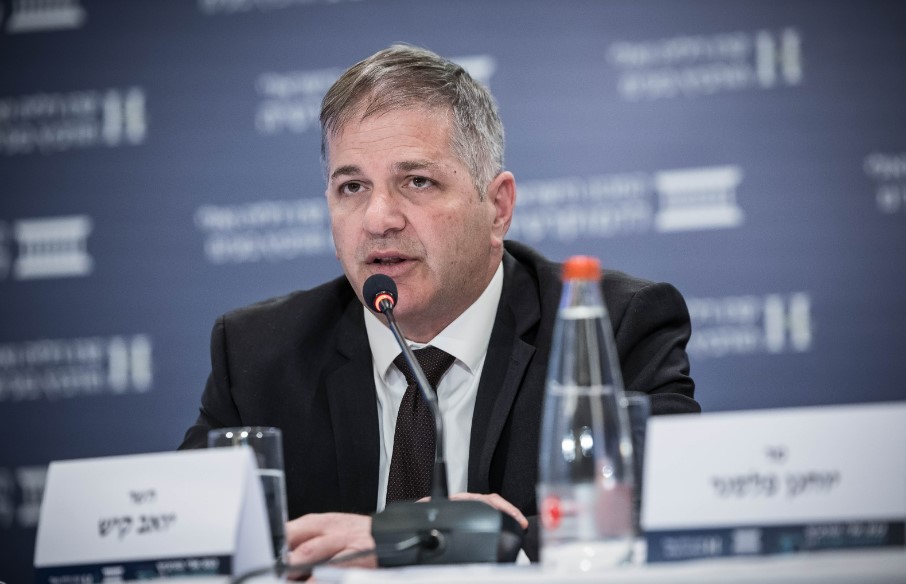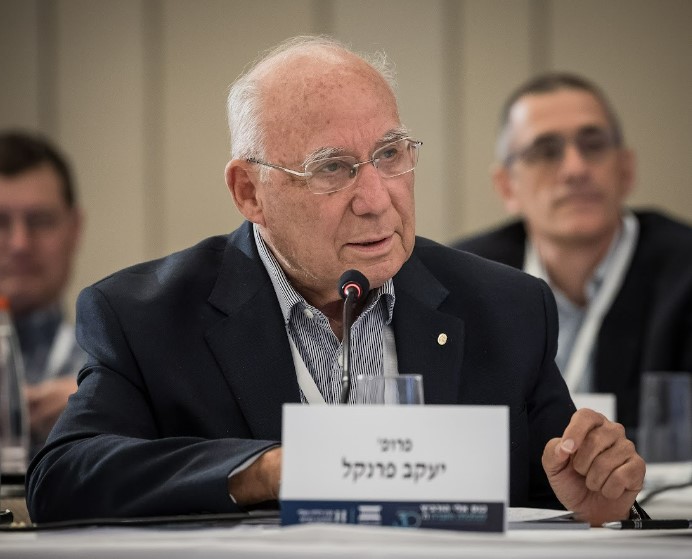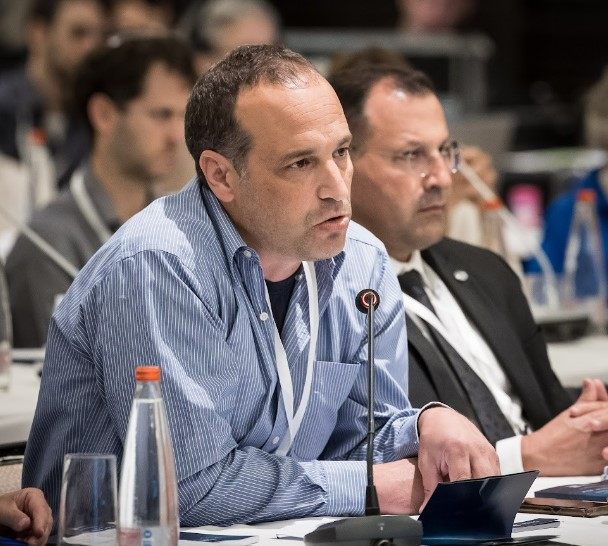The Link Between Education, Mobility, and High Tech - Eli Hurvitz Conference Day 2
“I want to maintain a strong, independent system of higher education” Yoav Kish, Minister of Education

Minister of Education Yoav Kish | Credit: Michal Fattal
The Eli Hurvitz Conference on Economy and Society continued today in Jerusalem with addresses by ministers, members of Knesset, academic experts and senior leaders from the high-tech, public and private sectors.
Yoav Kish, Minister of Education - “I want to maintain a strong, independent system of higher education. One of the most important aspects, is a real in my opinion, pluralist debate that can hear diverse points of view and that is the foundation of democracy.”
Regarding the talks on judicial changes taking place under the auspices of President Herzog, Minister Kish added: "All the headlines that came out of the President’s Residence - everything is a complete fake. There is a real dialogue and an attempt to reach agreements. A framework of agreements is the best option: legislation without consideration of the other side or the discarding the legislation all together – are both bad options. I am still optimistic because we all want a strong democracy, and we all want Israel to prosper. We disagree on the path, but we need to find a way to live together."

Prof. Jacob Frenkel || Credit: Oded Karni
Prof. Jacob Frenkel, Former Governor of the Bank of Israel; Recipient of the Israel Prize 2002, in response to Education Minister Kish – "I am very happy that the topic of education and its future occupies such a central place for you. There is a consensus that hi-tech is the cutting edge of Israeli society. Hi-tech today is in existential danger. Not only because of the global economy, but because of what we have done and are doing to it. There is tremendous uncertainty. The elephant in the room is of course the judicial reform or the regime overhaul - which created and continues to create tremendous uncertainty that affects us all."

Prof. Itai Ater | Credit: Oded Karni
Prof. Itai Ater, Senior fellow, Israel Democracy Institute in response to the Minister of Education Kish: "As Minister of Education, you are a partner to a terrible budget that cuts off almost a quarter of Israel's children - no core curriculum studies, no math studies, and no English. This isn’t metaphoric – rather massive and serious damage. It's time for action, not talk. Without democracy there is no academia, society and economy."
Eli Hurvitz, Executive Director of the Trump Foundation – “There are a few important measures begin taken to improve middle schooler’s education and we may begin seeing improvements in a variety of STEM subjects leading to more gender equality and more demographic and geographic equality.
So, the ball is back in the court of employers in the hi-tech industry. They said to us, ‘invest in education, the reason we don’t accept other populations is because their level of education is not on par.’ Well, now we’ve invested, so be ready to accept those people from the periphery, those minorities into your companies, because you will have a harder time explaining why not.”
Prof. Yotam Margalit, Senior Fellow, Israel Democracy Institute - "In order to integrate new sectors of society into high-tech, it is important to adapt education and invest in both the social and geographic periphery. Secondary education is just as important as post-secondary education. Education closes the integration gaps in high-tech only for certain groups in the population, appropriate education does not close the integration gap."
Maya Horowitz, Vice President for Research, Check Point Software Technologies – "I want to refer to very significant factors that can greatly affect the integration of women in high-tech: encouraging curiosity and not fearing failure. When I look at resumes, I also look for candidates in an area of interest or a hobby in which they know everything, or want to know everything. This is important because today in the world of technology you have to constantly learn. It is important to me to have diversity in the areas of interest, and not just in background or gender. The education system should work not only for matriculation in math and English, but also to educate the students that it is okay to have diversity in hobbies, there is a reward for studying in depth."
Moshe Friedman, Co-Founder, KamaTech – "The real startup is to integrate the ultra-Orthodox into hi-tech. 4% of all Israeli hi-tech employees are ultra-Orthodox. The ultra-orthodox women showed the fastest growth with a rate three times faster than the other women's groups. Our mission is to take these initiatives and strengthen them, instead of getting involved in discussing curriculum studies and political questions. There are initiatives in the area that are working and growing at a dizzying pace."
Hassan Tawafra, Head of the Arab Sector Economic Development Authority, the Ministry of Social Equality - "The life trajectory of a young Arab is different from that of a young Jew, and we need to know how to adapt. We need to look at the younger years of women in Arab society. There are no programs that can give the (empowering) social 'baggage' like in the Jewish sector such as the army and post-army trip."
Mohana Fares, Former Intel Vice President, Chair of Inter-ministerial Team for Boosting Employment in High-Tech – “An image of the future is a key to success. The story is not about abilities, but rather the student’s belief in him or herself. In order to succeed, you have to change the paradigm of changing the distinction between students. Not to divide by sectors or ethnicity, but by potential."
The Eli Hurvitz Conference on Economy and Society—formerly the Caesarea Economic Policy Planning Forum—is widely recognized as Israel's most influential economic conference. For 30 years, the Conference has served as a crossroads where public discourse and professional knowledge in economics and society meet, with the aim of improving the decision-making processes in the administration and improving the quality of Israel's social and economic policy for the benefit of the entire public.
The Eli Hurvitz Conference on Economy and Society, (May 30-31) was held with the participation of ministers and Knesset members, directors-general of government ministries and senior leaders from civil society, academia, as well as the public and private sectors.
A series of team-led research and policy recommendations on issues closely related to the conference sessions will be presented during the conference at the Orient Hotel in Jerusalem and online on IDI's website.
